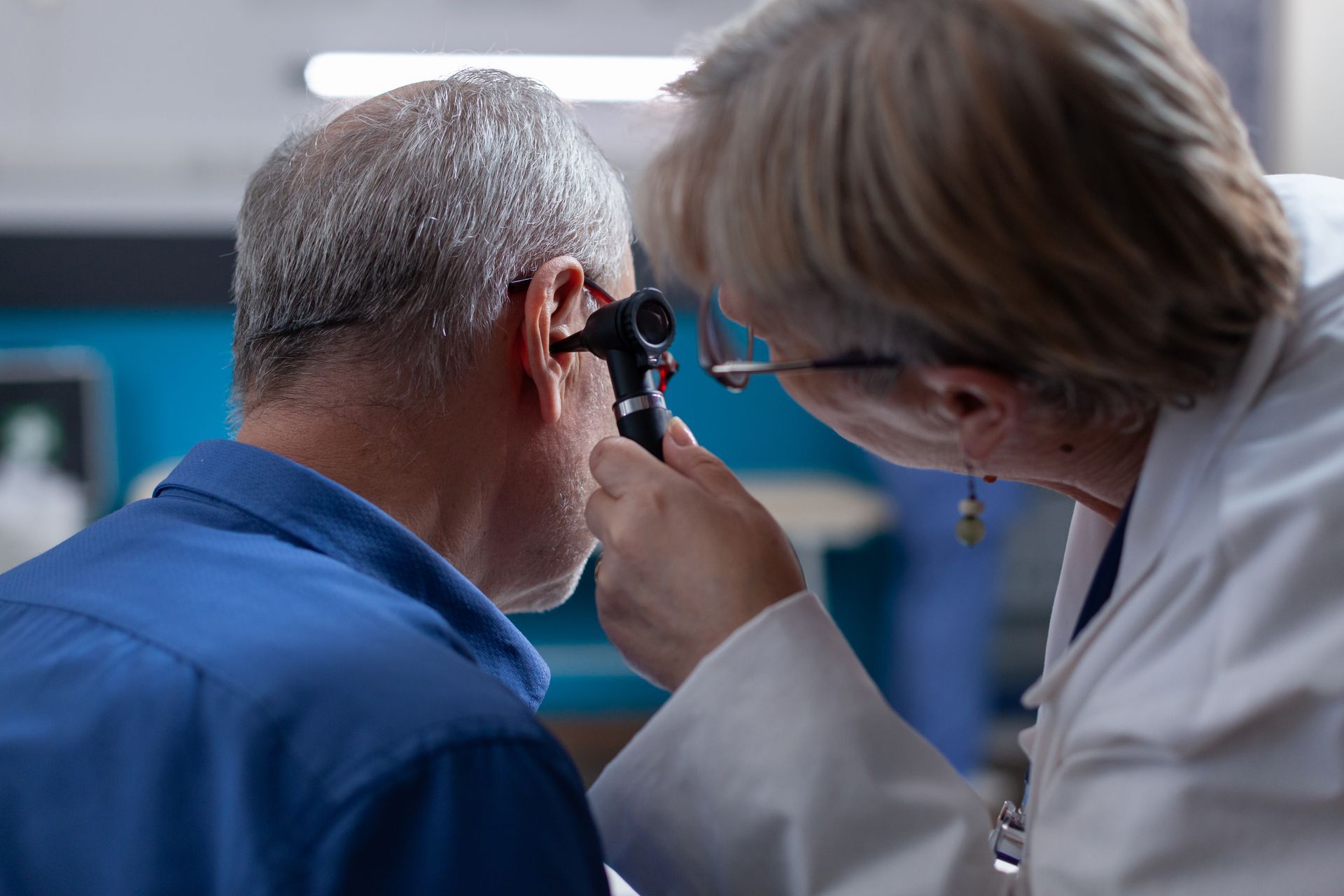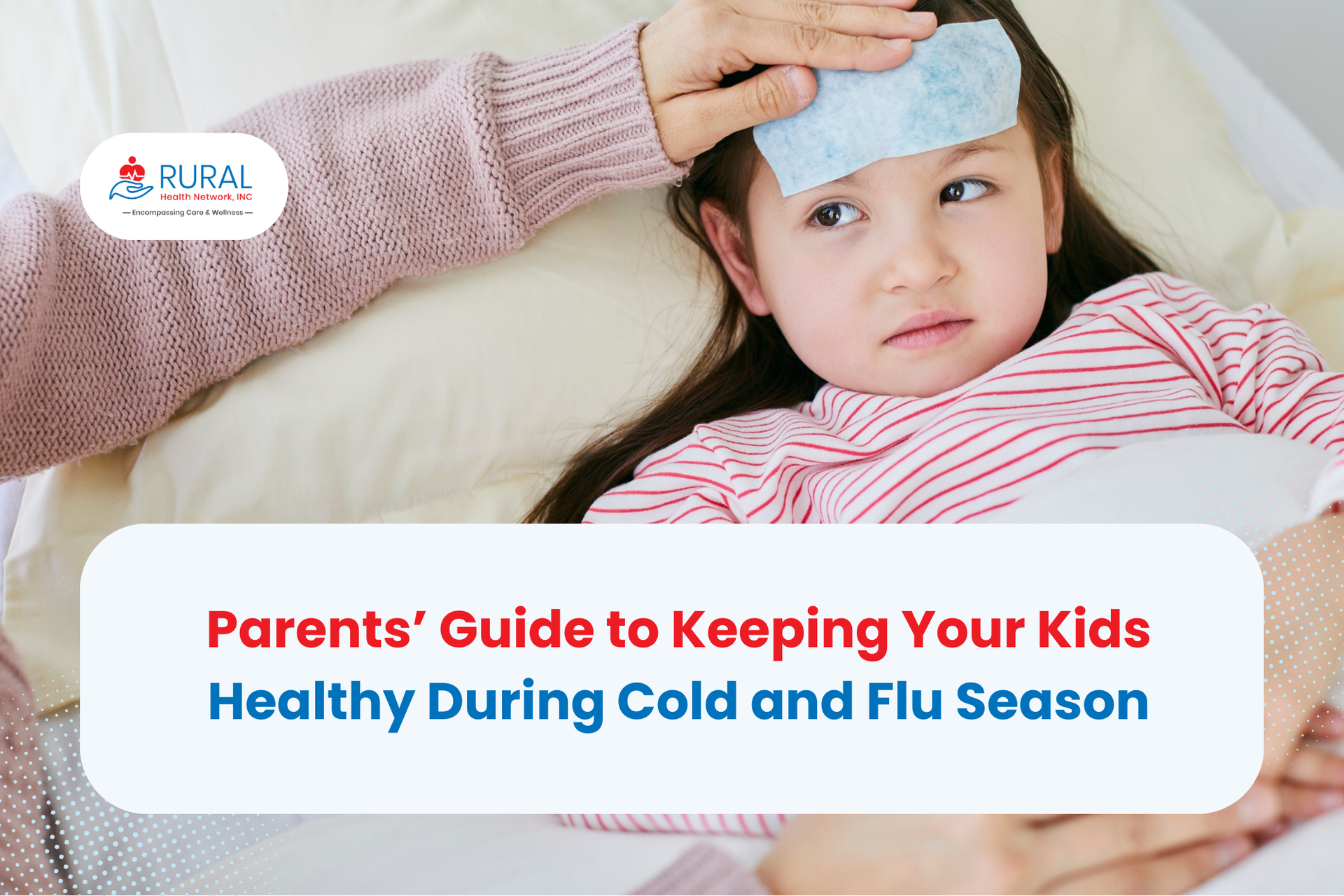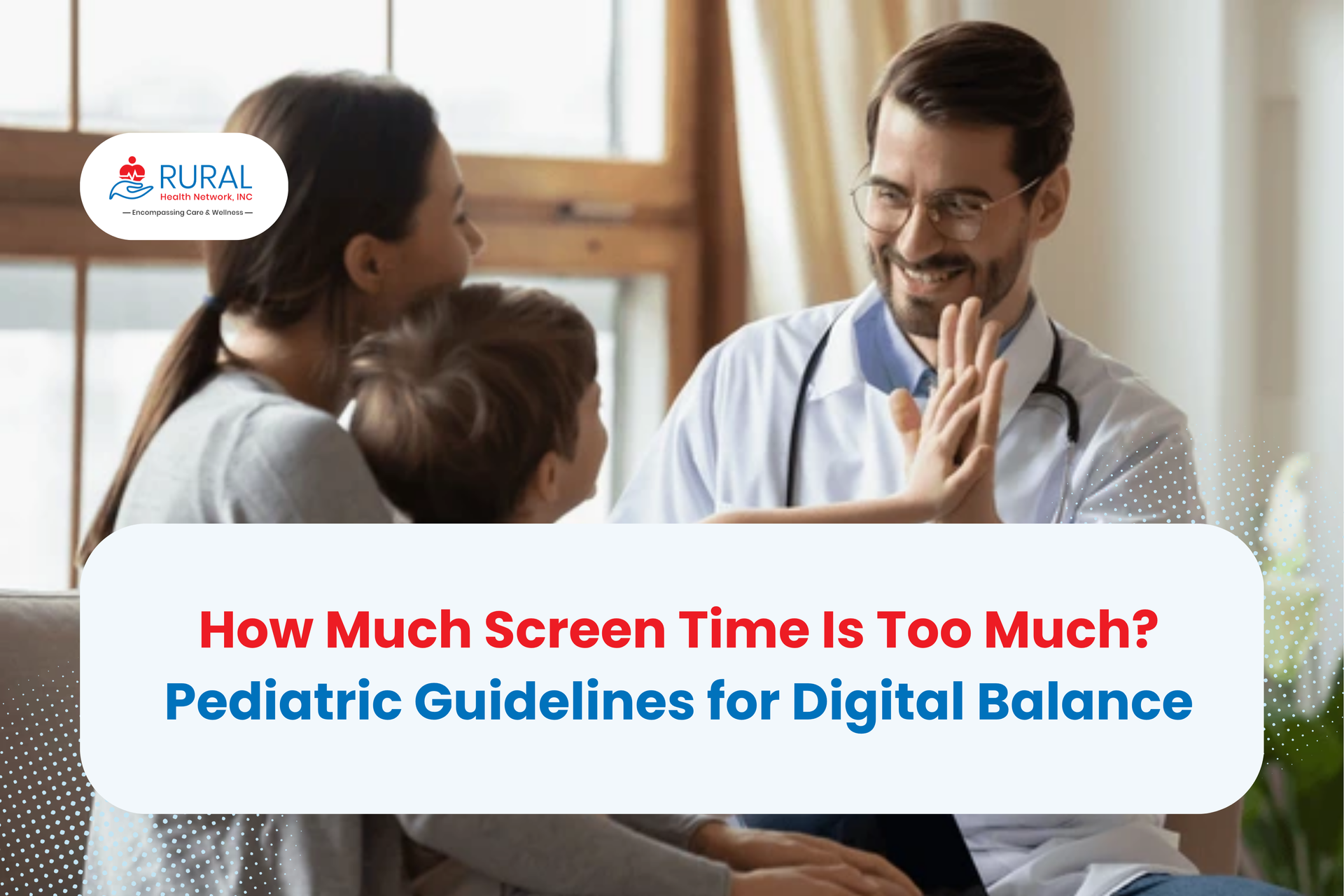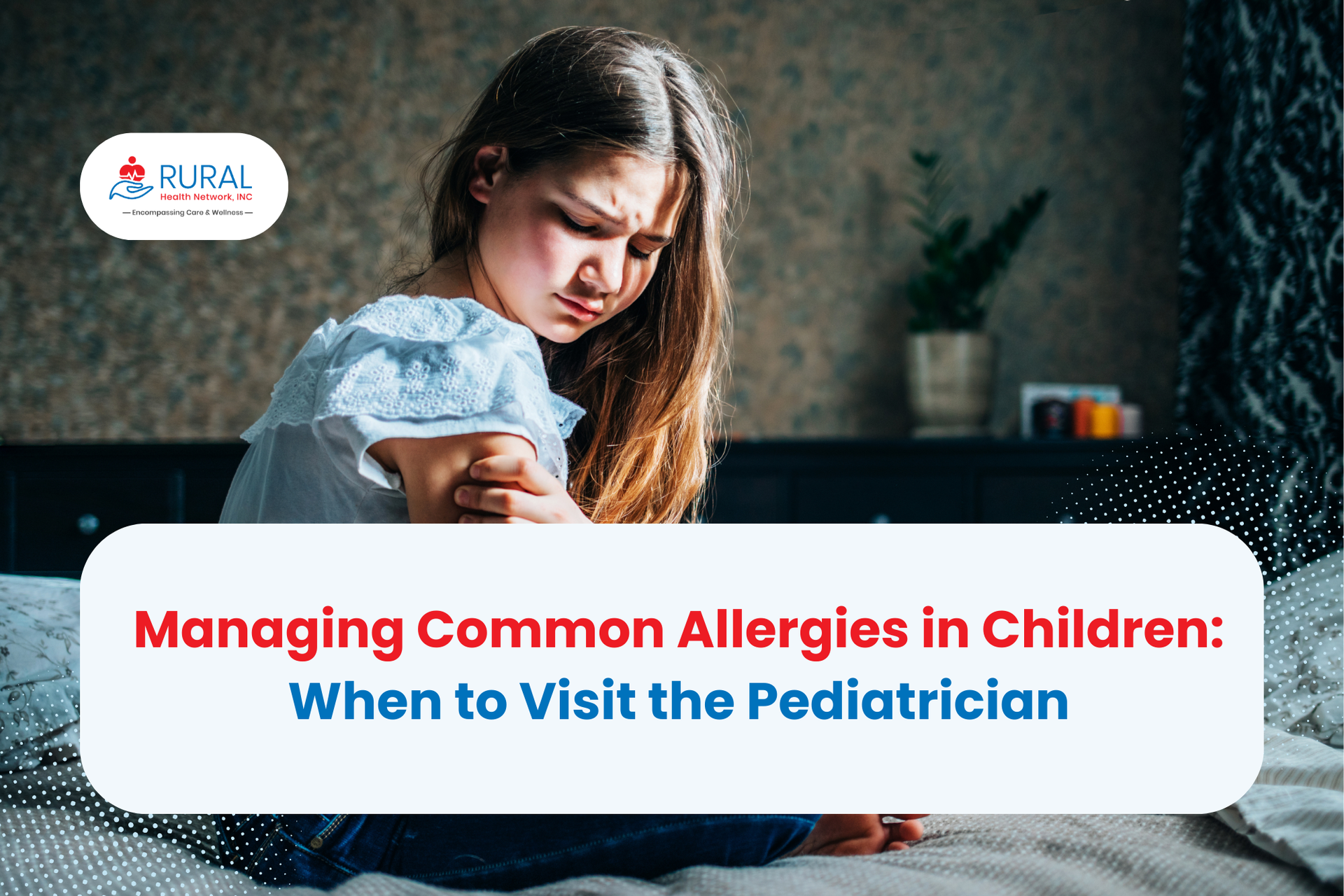Did you know that the average tractor produces about 100 decibels of noise? That's roughly the same as standing 25 feet from a helicopter taking off, and that’s just another day at work for those in rural communities.
The deafening sounds of tools aren't just background noise; they're the soundtrack of livelihood. It's no wonder farmers and agricultural workers face higher hearing loss risks than others. But when hearing fades, so do life’s most treasured connections.
Because hearing is more than just sound. It's about staying in tune with life's most precious moments—the belly laughs of grandchildren, the rustling wind through the corn fields, and the purr of a well-maintained engine. It's about preserving the lush auditory landscape of your life.
At
Rural Health Network, we know hearing loss in rural areas on a deeper level, and we see the stories and connections at risk. We are your neighbors and advocates, committed to ensuring you never miss a beat of your life’s most precious moments.
Don’t Let the Sounds of Rural Life Fade
The Hidden Risks of Noise in Rural Communities
In rural environments, many everyday sounds can pose hidden hearing loss risks, especially when their volume and duration go unnoticed.
When Does Sound Become Dangerous?
- Safe Zone: Under 85 dB
- Normal conversation (60 dB)
- Running Water (70 dB)
- Desktop fan (75 dB)
- Caution Zone: 85–100 dB
- Most farm equipment
- Power tools
- ATVs and recreational vehicles
- Danger Zone: Above 100 dB
- Grain dryers at close range
- Unmuffled tractors
- Livestock in confined spaces
You might not think twice about the noises that fill your daily routine, but some of those sounds could impair your hearing in the long run.
Safety Tip: If you have to raise your voice to talk to someone an arm's length away, the noise is likely at a dangerous level!
The duration of exposure matters just as much as the volume. A short burst of loud noise (like a gunshot) can cause immediate damage, while lower-volume sounds can wear down your hearing over time.
What’s at Stake?
- Noise-induced hearing loss (NIHL): This is a gradual and often irreversible condition caused by exposure to loud sounds.
- Tinnitus: It’s that constant ringing or buzzing in your ears. This may become permanent and can even disrupt your sleep and concentration.
- Quality of life impact: Untreated hearing loss can lead to feelings of isolation, frustration, and cognitive decline over time.
Recognizing the Early Signs of Hearing Loss
Take a moment to check if you’ve noticed any of these signs in the past few months:
✔ Frequently asking people to repeat themselves
✔ Turning up the TV volume louder than others prefer
✔ Having trouble following conversations in restaurants or gatherings
✔ Missing phone calls or alarm clocks
✔ Finding it hard to hear someone when they’re not facing you
✔ Feeling more tired than usual after social events
✔ Hearing a constant buzzing, ringing, or whooshing sound
If you checked any boxes above or have been in any of those situations, don’t wait to get help. Remember:
- Hearing loss is often gradual.
- Your brain adapts to hearing loss, making it hard to notice.
- The sooner you act, the more hearing you can preserve.
The sooner you catch hearing loss, the better your chances of preventing it from getting worse. So what can you do then?
- Pay attention to the signs of hearing loss in yourself and your loved ones.
- Don’t dismiss them as “just getting older” or “part of the job.”
- Schedule annual hearing screenings—it’s quick, painless, and can confirm if there’s a problem, setting you on the path to better hearing.
Tips for Preventing Hearing Loss in Rural Settings
Protecting your hearing doesn’t require huge changes—just a few simple habits and tools can make a big difference.
Choose Your Gear: A Quick Guide
Having the right tools can shield your ears from dangerous noise levels.
Smart Equipment Management
Here’s a simple maintenance checklist to reduce noise at its source while extending equipment life.
Workspace Solutions
Practical modifications and environmental adjustments can create quieter, safer working areas.
In the Shop
- Install rubber mats under the machinery.
- Use sound-absorbing panels on walls.
- Place noisy equipment on vibration pads.
On Equipment
- Keep cab doors and windows sealed.
- Replace worn cab insulation.
- Maintain air conditioning to keep windows closed.
Around the Farm
- Create dedicated zones for noisy tasks.
- Use trees/shrubs as natural sound barriers.
- Consider sound barriers near frequent work areas.
Don’t Forget: Regular Hearing Screenings
Your hearing health is just like any other aspect of your well-being, which can significantly benefit from preventive care.
Regular check-ups help:
- Catch potential issues before they become problems.
- Track your hearing health over time.
- Understand your unique noise exposure risks.
- Establish a baseline for future comparisons.
How often should you get a screening?
Age 18–40: Every 3–5 years
Age 41–50: Every 2–3 years
Age 51+: Annually
High-noise occupation: Annually, regardless of age
Healthy Hearing Starts with a Clinic That Listens
Your hearing health matters—and there’s no better time to prioritize it than now. At Rural Health Network, we hear you! Let us help you protect your hearing so you can continue to enjoy all the sounds that make rural life special.
In addition to providing quality care close to home, we offer services customized to your distinct needs:
- Wellness Exams: With advanced equipment, our hearing tests are quick, accurate, and designed to catch issues early.
- Personalized Prevention Plans: Learn practical ways to protect your hearing without disrupting your work and hobbies.
- Specialist Referrals: If further care is needed, we’ll connect you with trusted specialists for the support you deserve.
At Rural Health Network, we don’t just hear you out; we listen. Our mission isn't just about treating hearing loss; it's about preserving your quality of life and keeping you connected to the sounds that sustain you and your family.
Protect Your Ears, Preserve Your Livelihood













